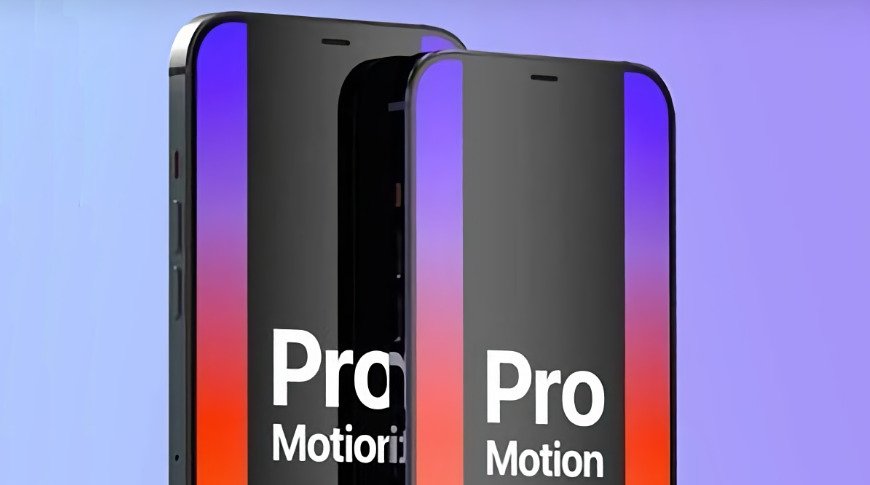Apple restricts third-party access to iPhone 13 Pro's 120Hz ProMotion display
Developers crafting iOS apps are unable to take full advantage of the ProMotion variable refresh rate display outfitted on the iPhone 13 Pro, with most animations restricted to the usual 60Hz rate.

ProMotion is touted as a tentpole hardware feature for the latest top-tier iPhone 13 Pro models, with the handset capable of adaptively shifting refresh rates from a buttery smooth 120Hz to a battery-efficient 10Hz, and multiple frame rates in between.
The screen intelligently chooses an optimal refresh rate depending on what content is displayed and how the user is interacting with the device. Fast-moving graphics and scrolling operations are afforded higher rates, while static content clocks rates down to as few as 10 updates per second.
Marketing material on Apple's website and the company's demonstration of ProMotion at the "California Streaming" event have suggested that all apps will take advantage of the feature, but that does not appear to be the case in iOS 15.
Developers have noticed that, while their apps hit 120Hz during scroll operations and full-screen transitions, in-app graphics are limited to 60Hz, reports 9to5Mac. Previous iPhone models and the current iPhone 13 use 60Hz displays.
Christian Selig, developer of Reddit client Apollo, brought attention to the apparent limitation on Friday. In a series of tweets, Selig notes users of his app are complaining that the comparatively slow refresh rates on certain animations make for a jarring experience. He goes on to speculate that Apple placed a cap on third-party apps to save iPhone battery life, as the same restrictions are not applied to iPad Pro models that feature ProMotion.
Interestingly, Apple's own apps are not subject to the same prohibitions and can operate at a full 120Hz on iPhone 13 Pro.
Whether the limitation is a bug or an intentional design decision remains unclear, but there is a possibility that future iterations of iOS 15 will open the door to full third-party access.
Read on AppleInsider

ProMotion is touted as a tentpole hardware feature for the latest top-tier iPhone 13 Pro models, with the handset capable of adaptively shifting refresh rates from a buttery smooth 120Hz to a battery-efficient 10Hz, and multiple frame rates in between.
The screen intelligently chooses an optimal refresh rate depending on what content is displayed and how the user is interacting with the device. Fast-moving graphics and scrolling operations are afforded higher rates, while static content clocks rates down to as few as 10 updates per second.
Marketing material on Apple's website and the company's demonstration of ProMotion at the "California Streaming" event have suggested that all apps will take advantage of the feature, but that does not appear to be the case in iOS 15.
Developers have noticed that, while their apps hit 120Hz during scroll operations and full-screen transitions, in-app graphics are limited to 60Hz, reports 9to5Mac. Previous iPhone models and the current iPhone 13 use 60Hz displays.
Christian Selig, developer of Reddit client Apollo, brought attention to the apparent limitation on Friday. In a series of tweets, Selig notes users of his app are complaining that the comparatively slow refresh rates on certain animations make for a jarring experience. He goes on to speculate that Apple placed a cap on third-party apps to save iPhone battery life, as the same restrictions are not applied to iPad Pro models that feature ProMotion.
Interestingly, Apple's own apps are not subject to the same prohibitions and can operate at a full 120Hz on iPhone 13 Pro.
Whether the limitation is a bug or an intentional design decision remains unclear, but there is a possibility that future iterations of iOS 15 will open the door to full third-party access.
Read on AppleInsider

Comments
That is a well stated and timely reference you made right there, my friend.
” Apple says iPhone 13 Pro ProMotion available to all apps, fix for Core Animation issue coming soon”
These kinds of hardware-software compatibility issues should not really come as a shock to people who don’t always assume the worst. It doesn’t matter how many iOS 15 betas Apple released to developers because none of the third party developers had the new hardware at their disposal during the beta period.
In a perfect world with honest developer partners who have a measure of integrity Apple could provide preproduction hardware test beds to developers so they could verify their software on the target hardware. But we all know what what that would bring, a prerelease leakage of new product “secrets” comparable to a Hoover dam collapse.
So basically, any new hardware capability that requires active intervention by third party software developers is always going to run the risk of being unavailable or not fully functional to those third parties at initial product launch. Likewise, Apple will be at risk of shipping a new hardware platform that has issues with certain third party apps because they cannot possibly test all possible hardware-software combinations prior to the launch of the new hardware.
When you buy an iPhone you are buying the capabilities listed. So you know going in what is supported and not supported. Complaining after the fact that it doesn't do W when it was never advertised as doing W doesnt get you very far.
It is Apple's HW. Not yours. They determine what the capabilities are. You may pay cold hard cash for an example of the HW but that doesn't give you any rights to demand it do something not supported.